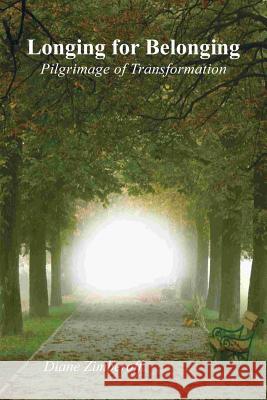Longing for Belonging: Pilgrimage of Transformation » książka
Longing for Belonging: Pilgrimage of Transformation
ISBN-13: 9780962272868 / Angielski / Miękka / 2015 / 280 str.
This book is the story of one woman's yearning for God, and at the same time it illuminates the universal relentless longing of all human beings for connection with their Source. I am reminded of three poetic statements of that yearning, one from the Muslim tradition, one from Judaic, and one from Christian. Eight hundred years ago, the Sufi mystic Rumi wrote the poem "Love Dogs": One night a man was crying, Allah Allah His lips grew sweet with the praising, Until a cynic said, "So I have heard you calling out, but have you ever gotten a response?" The man had no answer to that. He quit praying and fell into a confused sleep. He dreamed he saw Khidr, the guide of souls, In a thick, green foliage. "Why did you stop praising?" "Because I've never heard anything back." "This longing you express is the return message." The grief you cry out from Draws you toward union. Your pure sadness That wants help Is the secret cup. Listen to the moan of a dog for its master. That whining is the connection. There are love dogs No one knows the names of. Give your life To be one of them. Ultimately, we all give our lives to be something, and we all cry out from grief. To what end? Union, or exile? Another approach to exploring and understanding this human dilemma is presented by Rabbi DovBer, Maggid of Mezritch (?-1772), in the following well-known analogy. The human experience of exile is comparable to a father who conceals himself from his son. Not that the father does not want to be together with his son, but rather the purpose of the concealment is to awaken within the son a desire and yearning to find his father. After all, when the son is constantly in the presence of his father, his desire to be with his father is not revealed, for "continuous pleasure is not pleasure." There arises a situation, however, when the son ceases searching for the Father. He claims that "the signs of our redemption we have not seen, and there is none among us who know how long" (Psalms 74:9). He, therefore, concludes that G-d must have forsaken us and he loses hope and discontinues his search for G-d. When the Father sees that the son is no longer seeking him, then the exile truly begins. As long as the son is searching for the Father, this constitutes a preparation, a beginning, and a spark of the redemption -- for the search for Redemption is what is occupying the son. Therefore we must increase in light, and not just any light, but specifically the light of simcha (joyousness). Since simcha "breaks all boundaries and limitations," it breaks through the person's limitations, the limitations of this world, and the limitations imposed by this dreadful darkness. Union, or exile? We live on the verge of eternity, and every moment brings a new opportunity to choose. Jesus captured the universal law in this way: "Blessed are they which do hunger and thirst after righteousness: for they shall be filled" (Matthew 5:6). Those who yearn for spiritual unfoldment and growth in their connection with God will attain it, as long as they continue to be focused on satisfying this compelling hunger rather than squandering the opportunity by falling into distractions. Emmet Fox (1886-1951) summarizes this beatitude: provided we are truly wholehearted in our efforts, provided, that is to say, that we really are hungering and thirsting for righteousness, then, at last, we shall surely be filled. It could not happen that a wholehearted search for truth and righteousness, if persevered in, should not be crowned with success. God is not mocked, nor does He mock his children.











